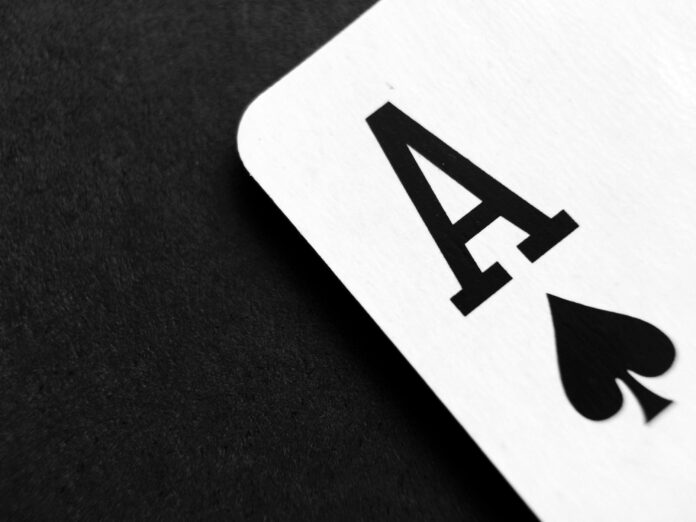As the digital economy continues to expand globally, online casino platforms are becoming increasingly prominent – not only in established markets like Ireland but also in emerging ones like India.
These platforms offer far more than just access to classic casino games; they deliver convenience, interactivity and often the allure of a Bonus – a key driver of user engagement. For India, where online gaming is rapidly rising but still operating under an evolving legal framework, Ireland’s structured approach provides a compelling reference point for what responsible and scalable digital gambling can look like.
Ireland’s Online Casino Landscape and the Strategic Use of Bonuses
Powered by a mature digital services ecosystem and a culture of regulated recreational gambling, Ireland’s online gambling market has seen slow but steady growth over the years. With increasing participation in online slots, table games and live dealer offerings, Ireland’s online casino market is projected to reach revenues of almost €650 million by 2025 (Statista). Fueling this participation is the tactical use of bonuses—welcome offers, no deposit promos and loyalty rewards.
In Ireland, such bonuses are methodically overseen to prevent any form of malpractice and guarantee true and objective competition. Operators are mandated to furnish specific explanatory documents detailing all terms and conditions, and the use of promotional instruments is surveyed by the newly established body, the Gambling Regulatory Authority of Ireland (GRAI), which was set up with the 2024 Gambling Regulation Act. These changes focus on responsible gambling while still enabling the platforms to be user-friendly and competitively efficient.
India’s Online Gaming Boom: A Market on the Rise
India’s online gaming market is experiencing explosive growth mainly due to factors like the shifting age demographics, increasing smartphone penetration and transformation of socio-cultural norms towards entertainment. India is projected to have over 659 million smartphone users by 2024. Moreover, as per a report by the EGROW Foundation, India’s online gaming industry is anticipated to surge to USD 2.4 billion by FY 2029, with a 20% CAGR.
The Indian market is predominantly driven by skill-based activities like rummy, fantasy sports and esports. In addition, there is a growing interest in more traditional casino experiences among the urban population. For many of these players, the availability of gamified elements, social interaction and bonuses drives interest in participating at some level, even in games where actual monetary involvement is legally restricted.
Legal Structures: Ireland’s Regulation vs. India’s Patchwork Policies
With the Gambling Regulatory Authority of Ireland now in charge of licensing, advertising, age verification and responsible gambling technologies, Ireland provides a sustainable ecosystem for online gambling. Innovation and consumer protection can now coexist prosperously, welcoming new industries with existing frameworks.
With the legalization of online gambling in India, the legal approach remains fragmented. The Public Gambling Act of 1867 still governs gambling laws, and the legislation is anti-digital. While some states like Sikkim and Nagaland have managed to offer licenses for online gaming, these exceptions do not set a rule in policy.
In the latest changes to its approach, the Indian government is modernizing its regulations. The 2023 Rules on the Information Technology (Intermediary Guidelines and Digital Media Ethics Code) now cover online gaming intermediaries, paving the way for a more comprehensive digital gaming policy. Yet, as of now, inclusive national legislation is still a work in progress.
For India, considering models like Ireland’s, where the use of bonuses is encouraged but regulated, could advance the development of a more streamlined and coherent framework for online gambling in the country.
Technology and Payment Infrastructure: Enabling Accessibility
Technological readiness is one aspect where India and Ireland share a resemblance. In Ireland, near-total smartphone penetration and the availability of reliable high-speed internet allow the population easy access to online casinos. Similarly, in India, the rapid adoption of mobile phones, along with the introduction of secure digital payment systems like UPI (Unified Payments Interface), has significantly lowered the barriers to accessing online gaming.
Furthermore, these two countries have ample trust in digital payment systems, enabling players to effortlessly deposit, withdraw and redeem bonuses. This financial freedom enhances the safety and ease of gaming, which is crucial for areas with a historically low level of trust in online payment systems.
Cultural Attitudes and Emerging User Behavior
In Ireland, gambling is largely seen as an activity for leisure and is casually enjoyed; however, Indians have a more nuanced view of this activity. There is still some social stigma surrounding gambling, which makes most consumers apprehensive due to the legal grey area that surrounds the topic.
What can be noted is that Indian consumers in the digital sphere, particularly those between eighteen and thirty-five years of age, are becoming more receptive to the international gaming culture. The casual gamer from this age group appreciates rewards that are measured by time spent or engagement, not by monetary bids. Furthermore, the possibility to play games on mobile devices has transformed online gaming into casual entertainment, which is easier to access.
The change is reminiscent of earlier trends noted in Ireland, where the perception of participation in online casinos changed with increased digital literacy and subsequent education of users.
Gaming Addiction: Prevention and Online User Safety
Focusing on responsible gaming is one of the most notable and unique aspects of Ireland’s approach to regulation. Licensed operators are required to have the following capabilities:
- Providing clear and concise terms associated with bonuses
- Enabled reality check, timer sessions and reminders
- Deposit and spending limit controls
- Self-exclusion options
- Monitored high-risk behavior
Whether these protections are useful or not, in Ireland they assist in avoiding problematic behavior without users disengaging. In India, many emerging platforms are adopting similar safeguards, even if they are not yet required, to build their trust with consumers. These tools are likely to become foundational for users as the sector welcomes more users.







